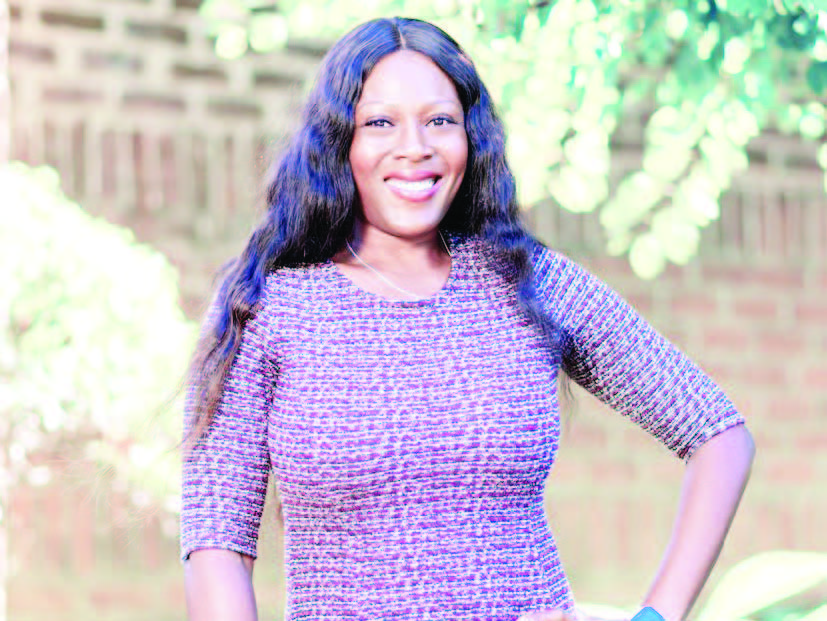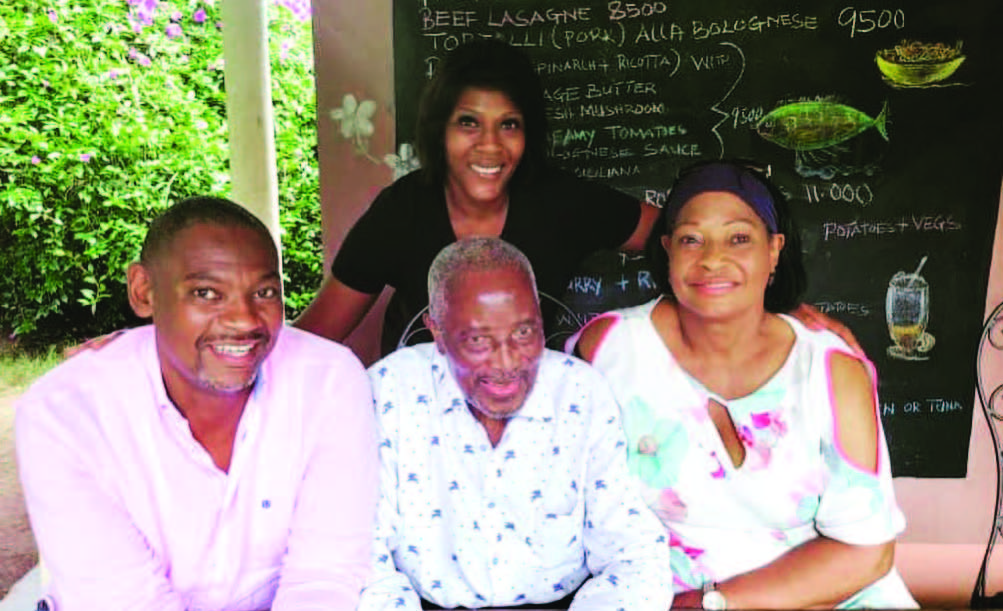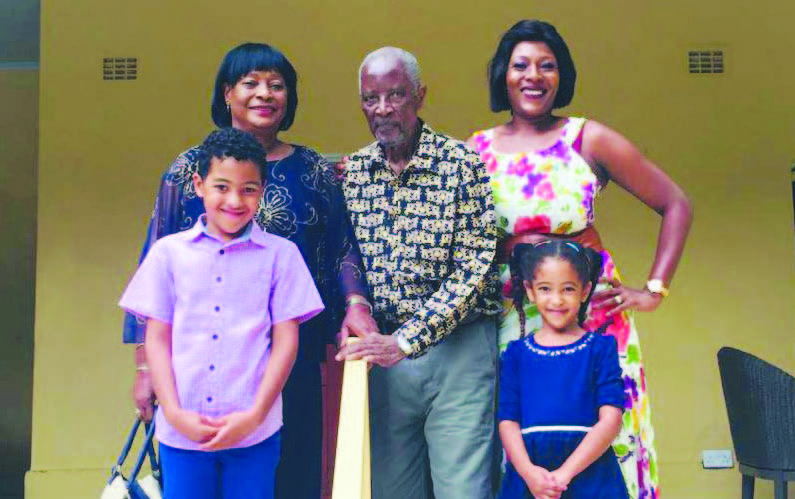Dr Lucinda Manda-Taylor: Researching Mental Health
Mental health is misunderstood in Malawi. Many people suffering from various forms of mental disorders are misdiagnosed by society.
Patients may be accused of chamba (hemp)smoking or simply portrayed as difficult people. Some are not even accorded professional help.

It is because of such situations that the academic fraternity is devising ways of involving everyone in helping people with mental illness.
Among the various players, the Kamuzu University of Health Sciences (KUHeS) is doing its part to promote better practices.
Dr Lucinda Manda-Taylor, a senior lecturer in Ethics at the institution is lead principal investigator in a five-year mental health project.
The project, involving a 3 185 742 pounds (about K3.5 billion), is called Psychosis Recovery Orientation in Malawi by Improving Services and Engagement (Promise).
“We are targeting people with psychosis, local communities and health leaders to build on existing health services and initiatives; develop acceptable and sustainable psychosis detection systems and management pathways,” she says.
Manda-Taylor says the project seeks to improve psychosis awareness and the outcomes of people with the condition in Malawi,” she says.

The project leader brings a social science approach to the study which offers a deep understanding to human behaviour, culture and interaction with scientifically designed interventions for safety and efficacy.
She adds: “My background in ethics and social sciences has allowed me to lead the research teams exploring the matter and see how best we can come up with acceptable health interventions.”
But what is psychosis condition?
According to various scholarly websites, psychosis is a mental disorder characterised by a disconnection from reality.
It may occur as a result of a psychiatric illness such as schizophrenia. In other instances, it may be caused by a health condition, medication or drug use.
Manda-Taylor says she has over the years been involved in research programmes on malaria and anaemia; neonatal and child health.
“I am branching out and providing my research experience and skills to mental health which is now a significant global health topic. For too long, Africa has neglected the enormous need to acknowledge mental health as a public health issue,” she says.
The researcher will work with a team of researchers from other institutions such University of Edinburgh, Kings College, London, St John of God and the Ministry of Health.
She says with such resources, she hopes the new project and its findings can inform national health policies on mental health and see to it that people with various mental health issues are assisted by both the formal institutions and society.
Talking about the process of applying for the grant and finding out that she and her team were successful, Manda-Taylor said she was overjoyed.
“We went through rigorous interviews with panelists of reviewers selected by the Wellcome Trust. They interrogated us on various aspects. Even though it was via zoom, the same nerves one gets in a physical meeting were felt.
“So, I could not believe our fortune, especially bearing in mind that I have gone through this process several times with other grants and was not picked. So, yes, just like the late Aaliyah sang: ‘If at first you don’t succeed, then dust yourself off and try again’.”
Life as a researcher/academician
Manda-Taylor is deputy head of health systems and policy, a department within the school of public health and family medicine.
“I provide administrative and academic support to the programmes with the department. I also offer my expertise to conduct research and outreach activities that aim to help improve the health and well-being of Malawians,” she says.

She is also a senior lecturer in ethics and social science research methods to undergraduate and postgraduate students at KUHeS.
Before these roles, Manda-Taylor worked as administrator for the College of Medicine Research Ethics (Comrec).
She was part of the first formally employed secretariat responsible for overseeing the day-to-day management of the ethics committee.
“I am proud to say that as a secretariat, we provided seamless and timely reviews and feedback to international and local researchers who needed to have their research projects approved during my seven years at the helm,” she says.
The researcher was also the first female editor-in-chief for the Malawi Medical Journal (MMJ), Malawi’s only indexed health journal in web science.
She says: “During my two-year tenure, the MMJ’s Impact Factor (IF) soared from 0.611 (2016) to 1.123 (2017), signaling an 80 percent jump. IF is a metric used to reflect the importance of a journal within its field. The higher the IF, the more prestige the journal carries.”
Her education journey
Manda-Taylor has a PhD in ethics from the University of Kwazulu Natal in South Africa.
She went to Saint Andrews Primary School between 1985 and 1990 before proceeding to Saint Andrew’s High School between 1991 and 1995. She also went to Epworth Girl’s High School in South Africa between 1996 and 1997.
“I matriculated with enough points to enroll in the University of Natal, now known as The University of Kwazulu Natal,” she says.
Personal life
She is married to a history teacher at Saint Andrew’s International High School and together they have two children; Adrian, born in 2012 and Tamara, born in 2015.
Apart from her academic achievements, she is a certified and licensed Group EX Fitness instructor.
“In my spare time, I love working out and teaching group fitness classes. I also have developed a new passion in tennis. I play doubles against my husband who most often wins, much to my chagrin,” she says.
Manda-Taylor is a sister to well-known personality Walter Nyamilandu-Manda and says her brother has taught her about resilience and hard work.
“He has taught me to put my mind to whatever I want to achieve and ignore the negative sound bites,” she says.
Her father, the late Ronald Soka Manda was a human resource manager for then Sucoma.
“He taught me my basic administrative skills,” says Manda-Taylor.
She says her mother Hazel Aida Manda also laid the foundation of building solid work ethics.
“My mother was a Biology and Bible Knowledge teacher at Chikwawa Secondary School. She later became an administrator and retired as a divisional manager for Shire Highlands Education Division,” adds Manda-Taylor.
Other people that she points out as inspirations in her life include Kerri Fry, Edca Potgieter-Mennell, Temwa Msiska, Lucille Kalele and Gabriel Fernandes.
She also looks at her children as her significant milestones.
She says: “They have given my life meaning and significance because when you have children who are a gift from God, you wake up knowing what you need to do and achieve to meet their needs.”






One Comment